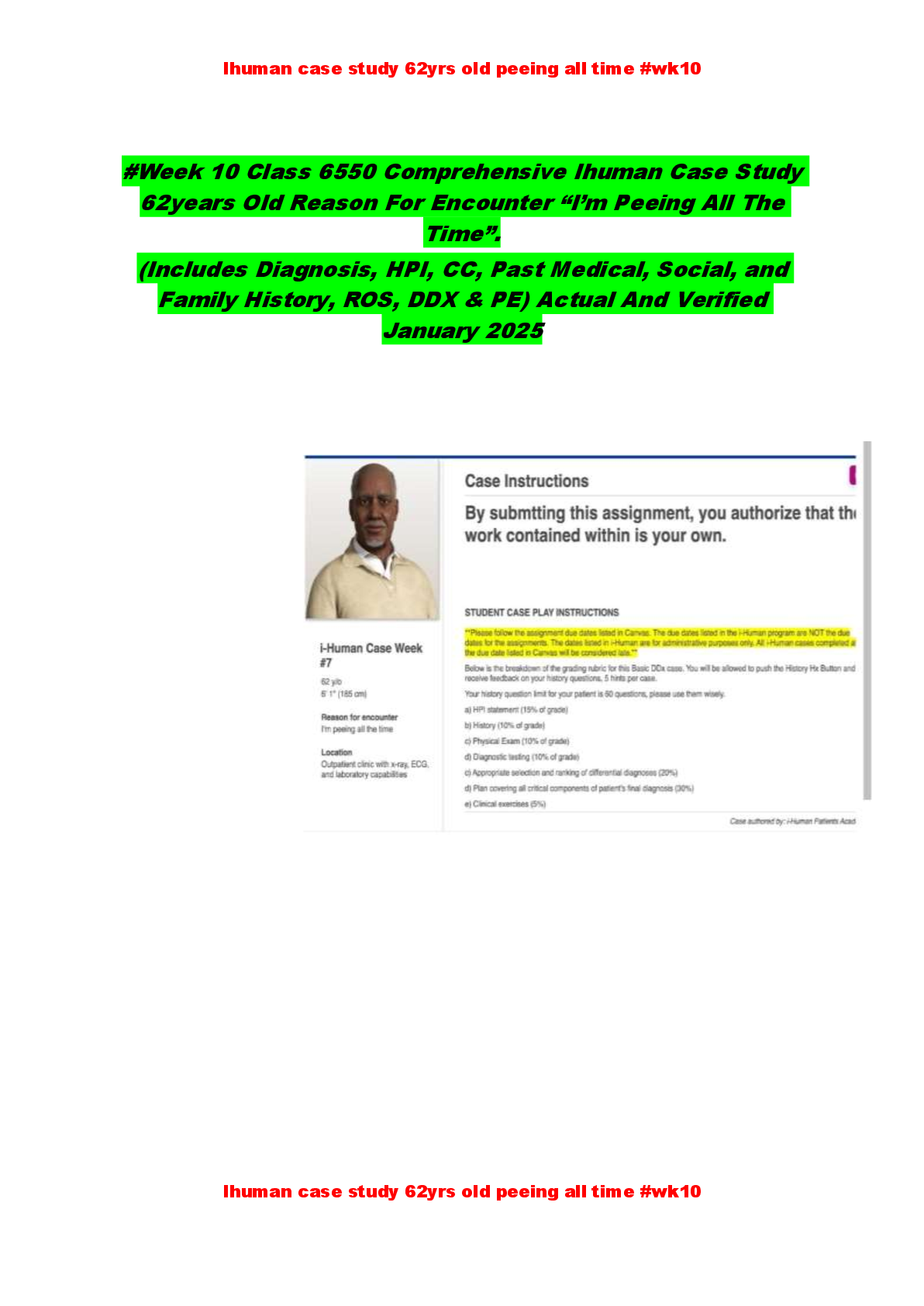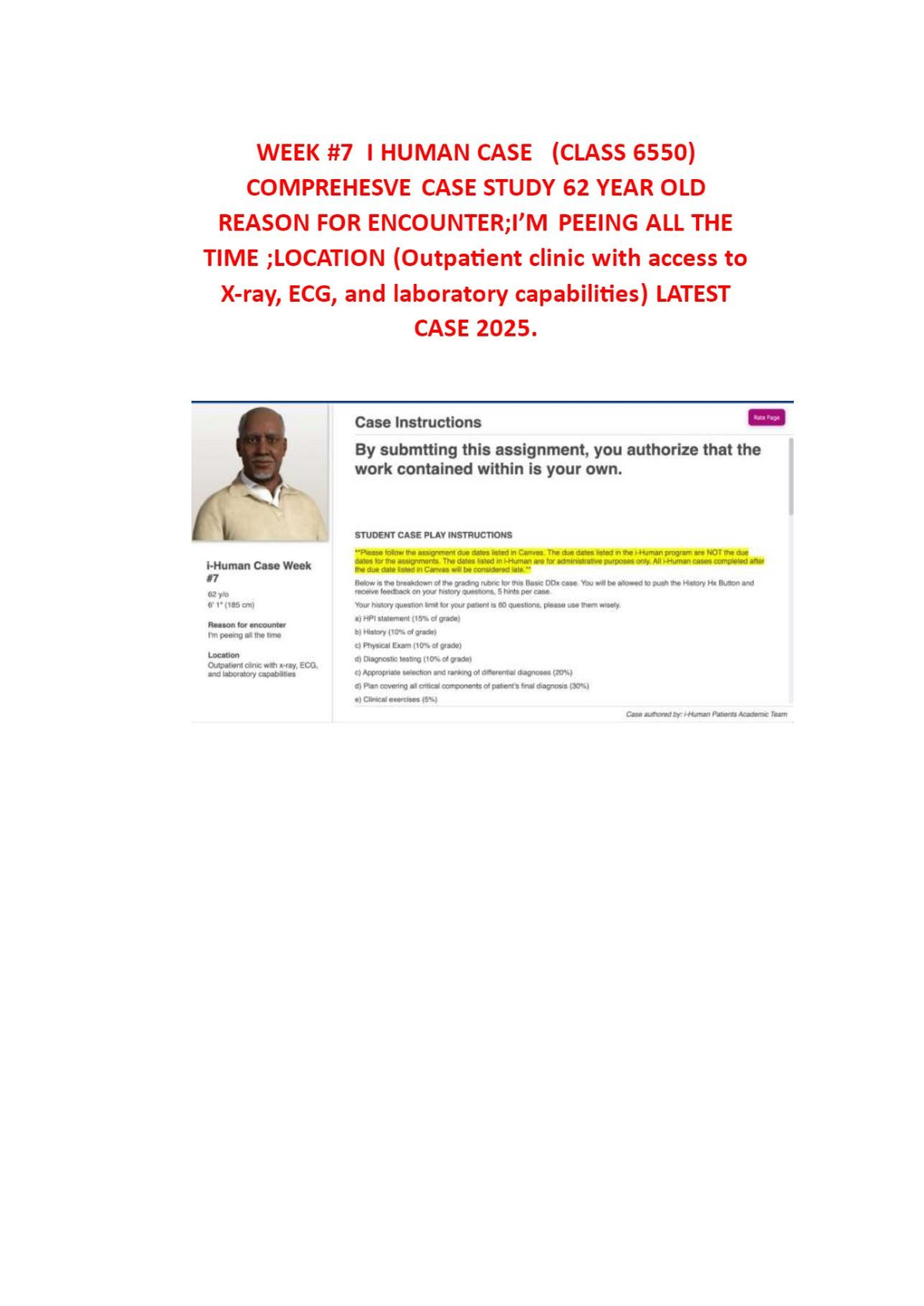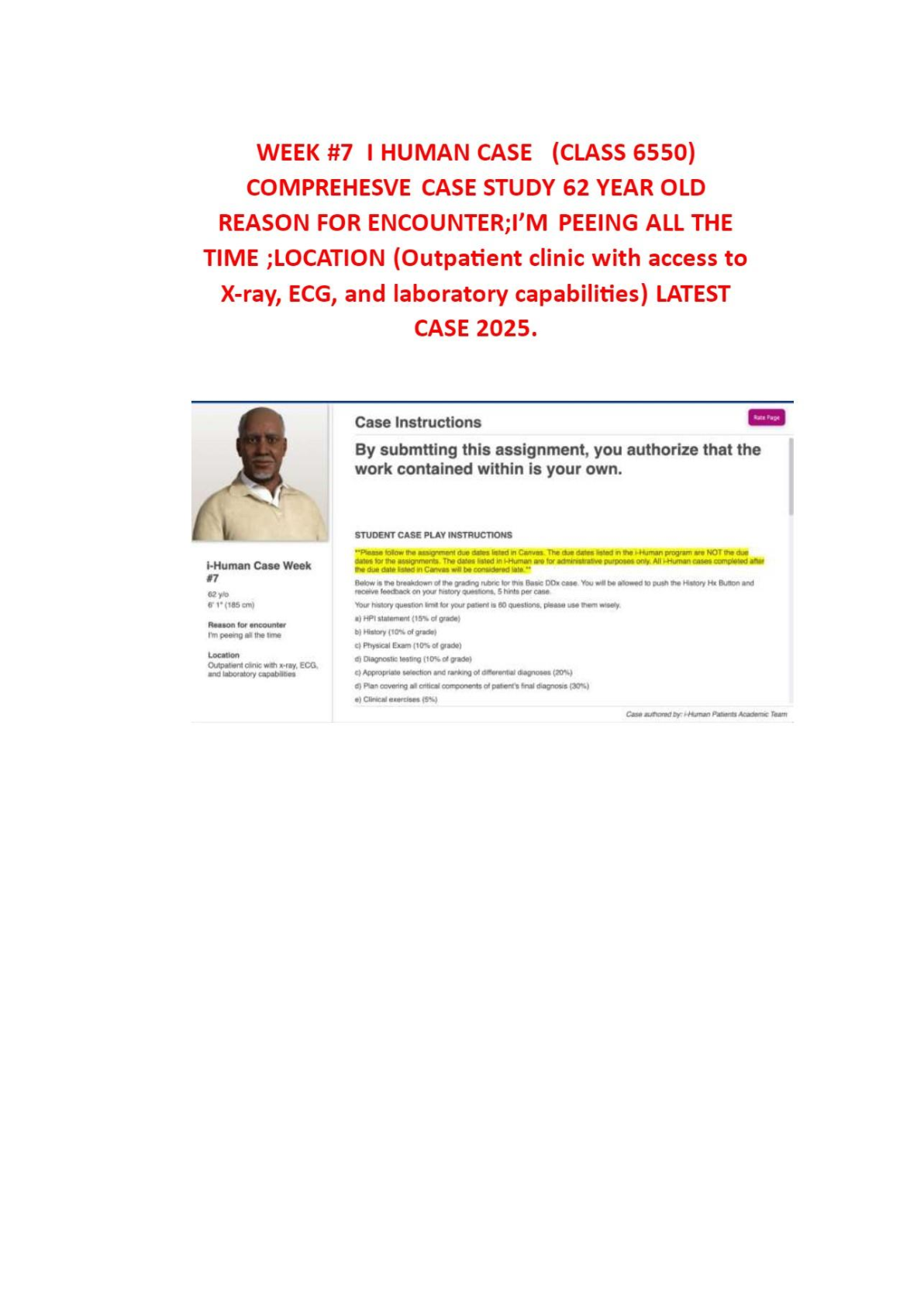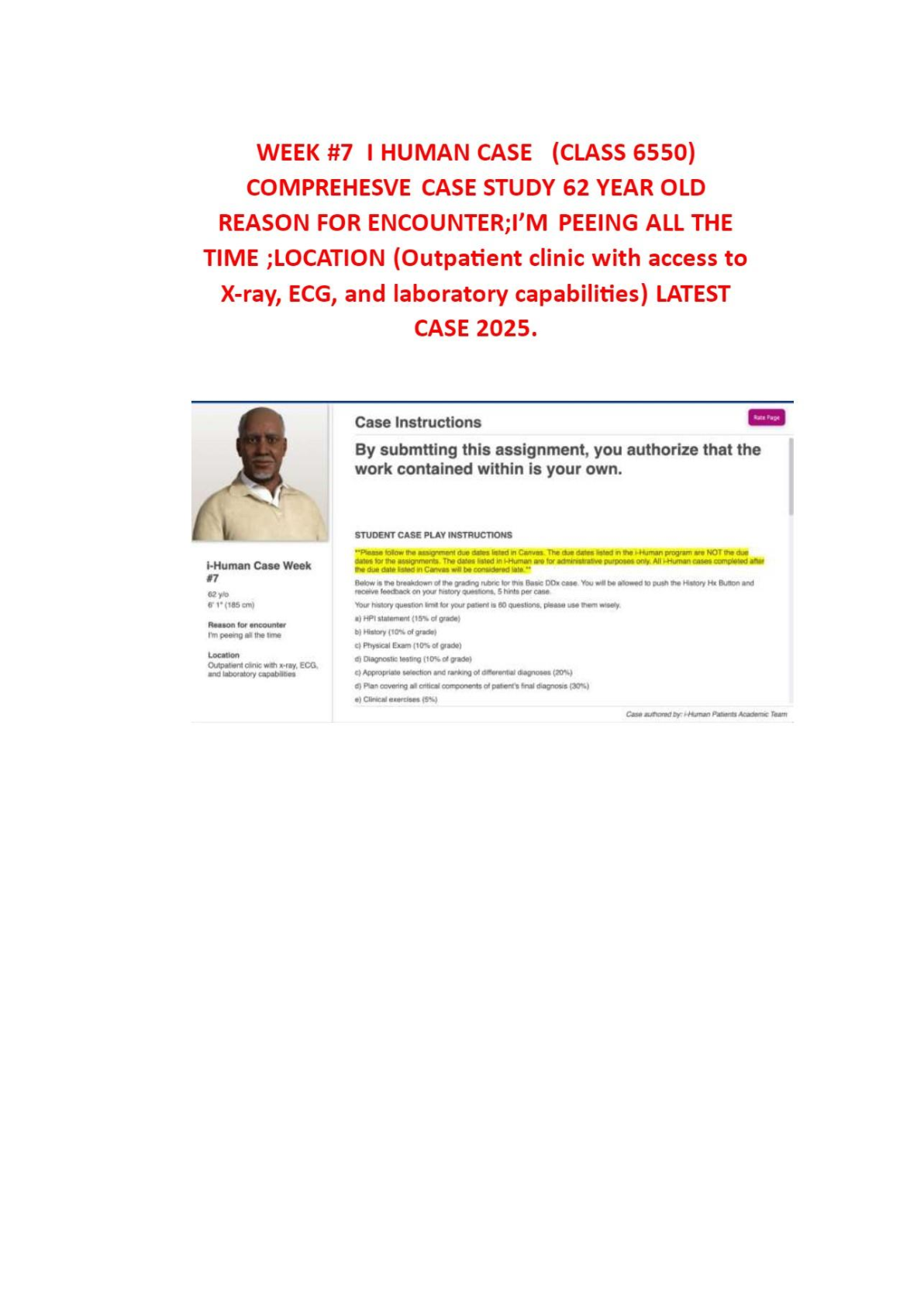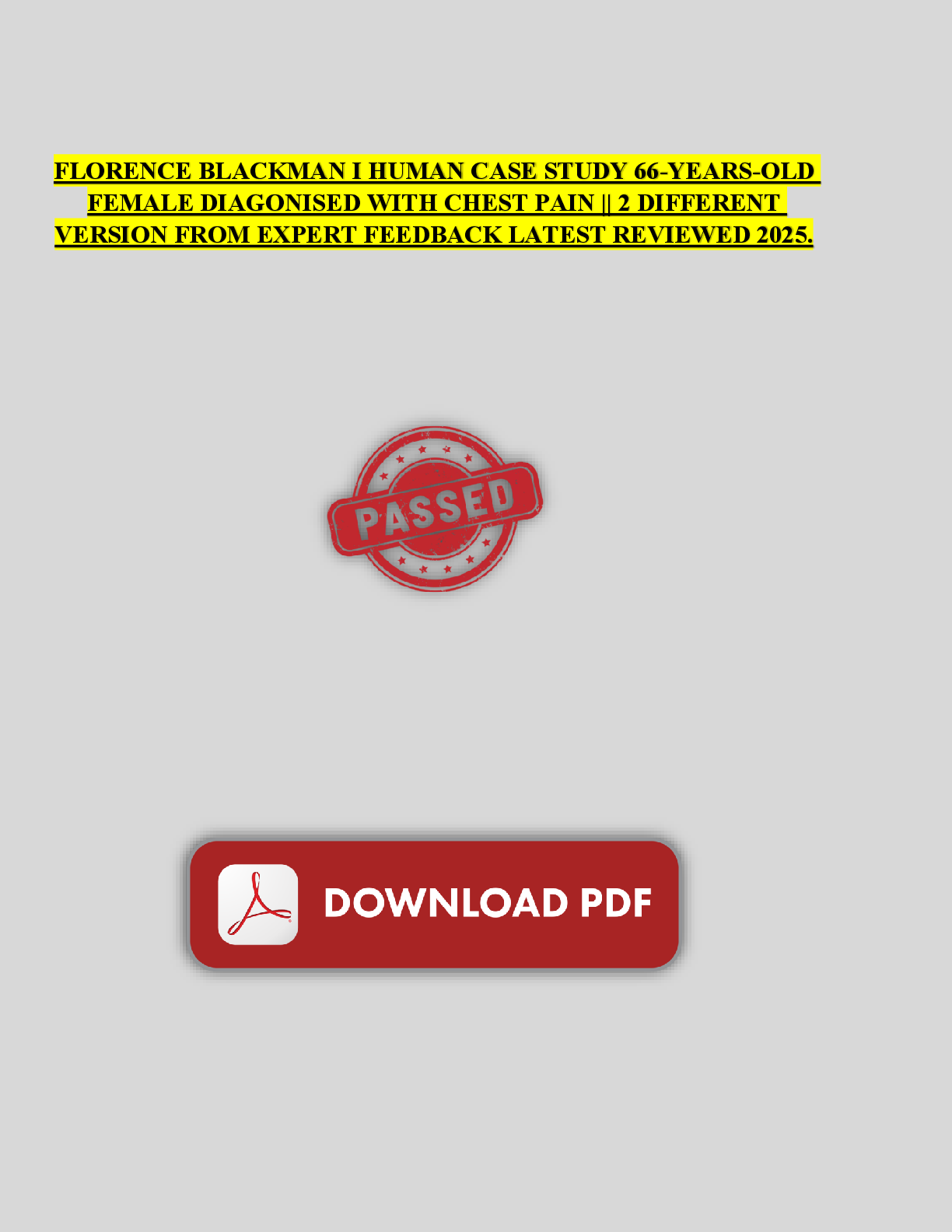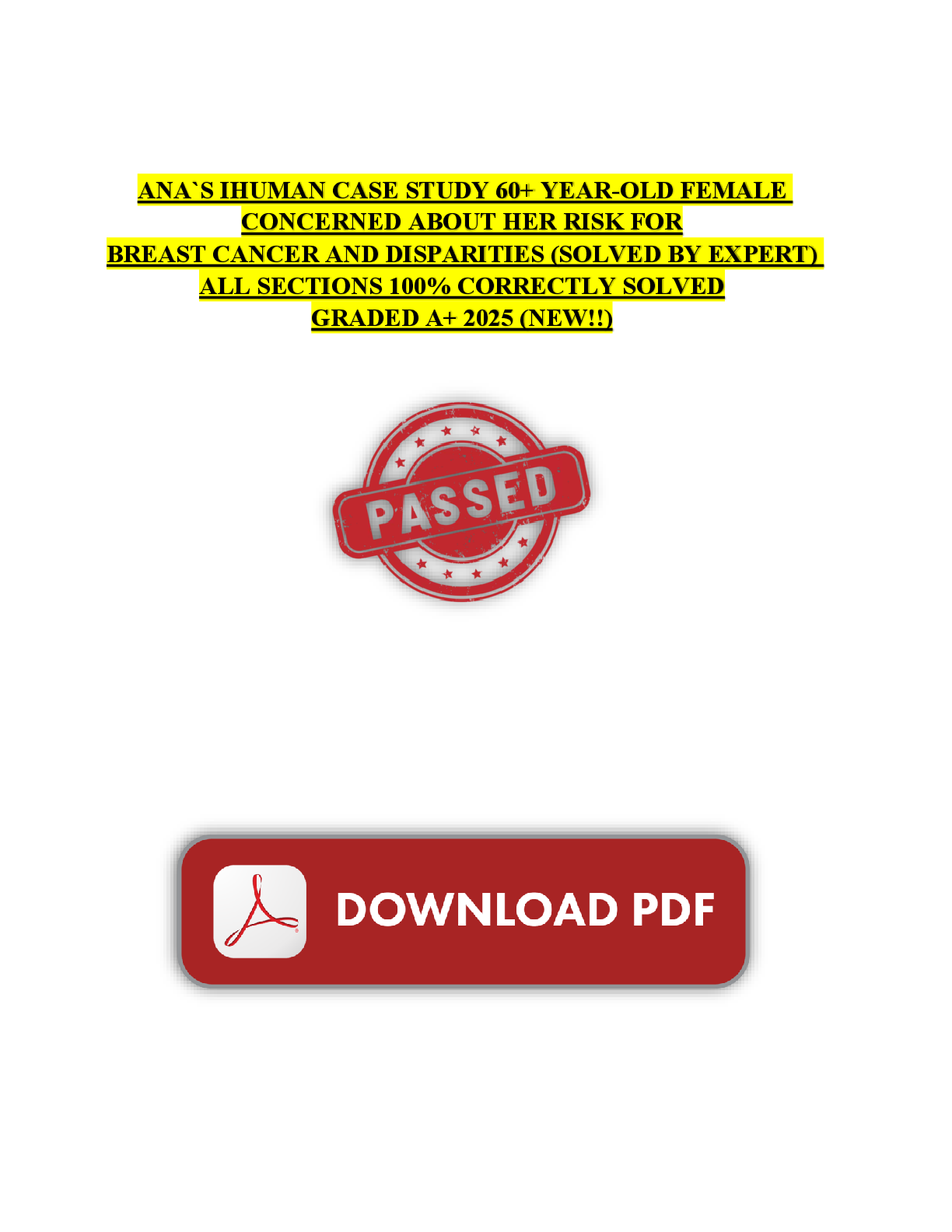Biology > CASE STUDY > BIOL 1141 Case Study 6 George Hendrix is a 38-year-old man who has abused alcohol his entire Life (All)
BIOL 1141 Case Study 6 George Hendrix is a 38-year-old man who has abused alcohol his entire Life
Document Content and Description Below
Case Study 1: A Case of Acute Pancreatitis by David F. Dean, Department of Biology, Spring Hill College Case Presentation George Hendrix is a 38-year-old man who has... abused alcohol his entire adult life. Recently, following an episode of binge drinking, George experienced a gradual onset of pain in his upper abdomen that radiated to his back. The pain persisted for several hours and worsened each time that he ate. He also felt nauseous and experienced repeated episodes of vomiting. The pain grew more intense and George decided to drive himself to the emergency room of his local hospital. The physician who examined George in the ER noted the following findings when she performed a physical exam: Intense pain upon palpation of the upper left quadrant of the abdominal cavity, gaseous distension of the intestinal tract, and tachycardia. The physical exam findings, together with the history of alcohol abuse and the results of a CBC, serum chemistry panel, and abdominal ultrasound, led the physician to conclude that George was suffering from a case of acute pancreatitis. The doctor immediately initiated the appropriate medical therapy. Questions 1. Describe the anatomic location of the pancreas relative to the other organs in the upper portion of the abdominal cavity. - The head of the pancreas is on the right side of the abdomen and is connected to the duodenum (the first section of the small intestine) through a small tube called the pancreatic duct. 2. Describe the functional anatomy of the duct system that conveys bile from the liver and digestive juice from the pancreas to the lumen of the duodenum. - The head of the pancreas is on the right side of the abdomen and is connected to the first section of the small intestine. 3. Briefly outline the endocrine and exocrine functions of the pancreas. - Functioning as an exocrine gland, the pancreas excretes enzymes to break down the proteins, lipids, carbohydrates, and nucleic acids in food. Functioning as an endocrine gland, the pancreas secretes the hormones insulin and glucagon to control blood sugar levels throughout the day. 4. Describe the hormonal control of the secretion of bile and pancreatic juice during the digestive process. - Describe the hormonal control of the secretion of bile and pancreatic juice during the digestive process. ...........................continued [Show More]
Last updated: 2 years ago
Preview 1 out of 5 pages

Buy this document to get the full access instantly
Instant Download Access after purchase
Buy NowInstant download
We Accept:

Reviews( 0 )
$6.00
Can't find what you want? Try our AI powered Search
Document information
Connected school, study & course
About the document
Uploaded On
Jul 08, 2021
Number of pages
5
Written in
Additional information
This document has been written for:
Uploaded
Jul 08, 2021
Downloads
0
Views
87


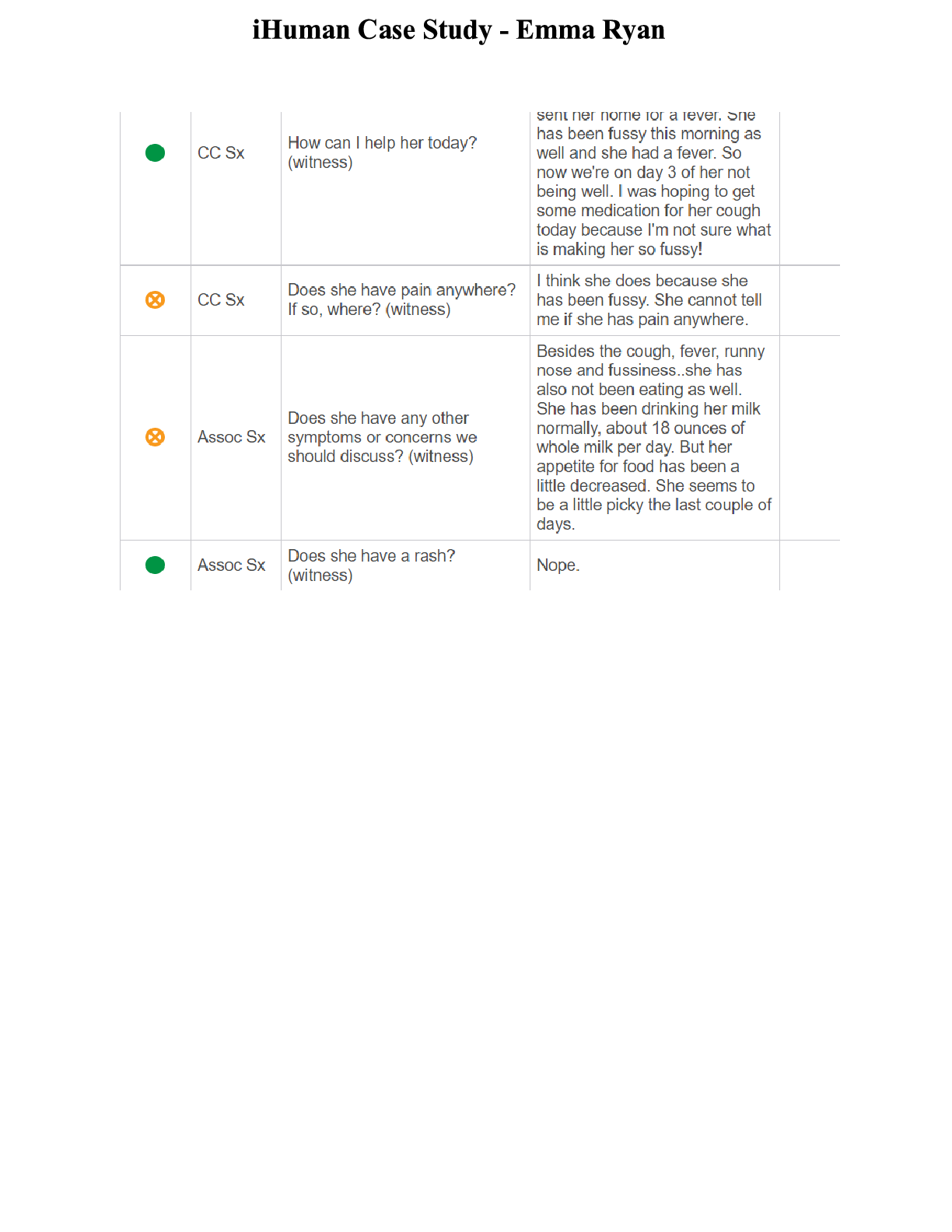
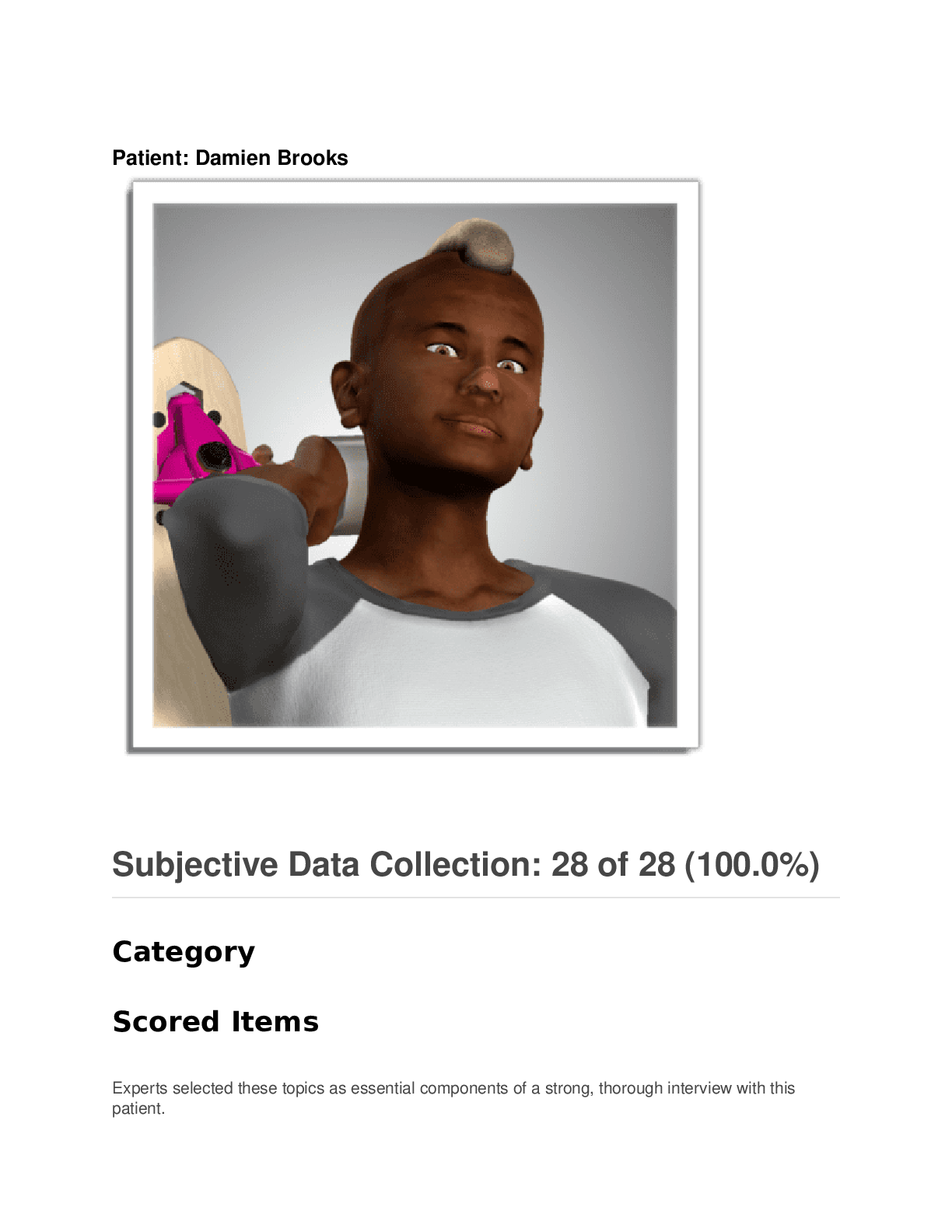
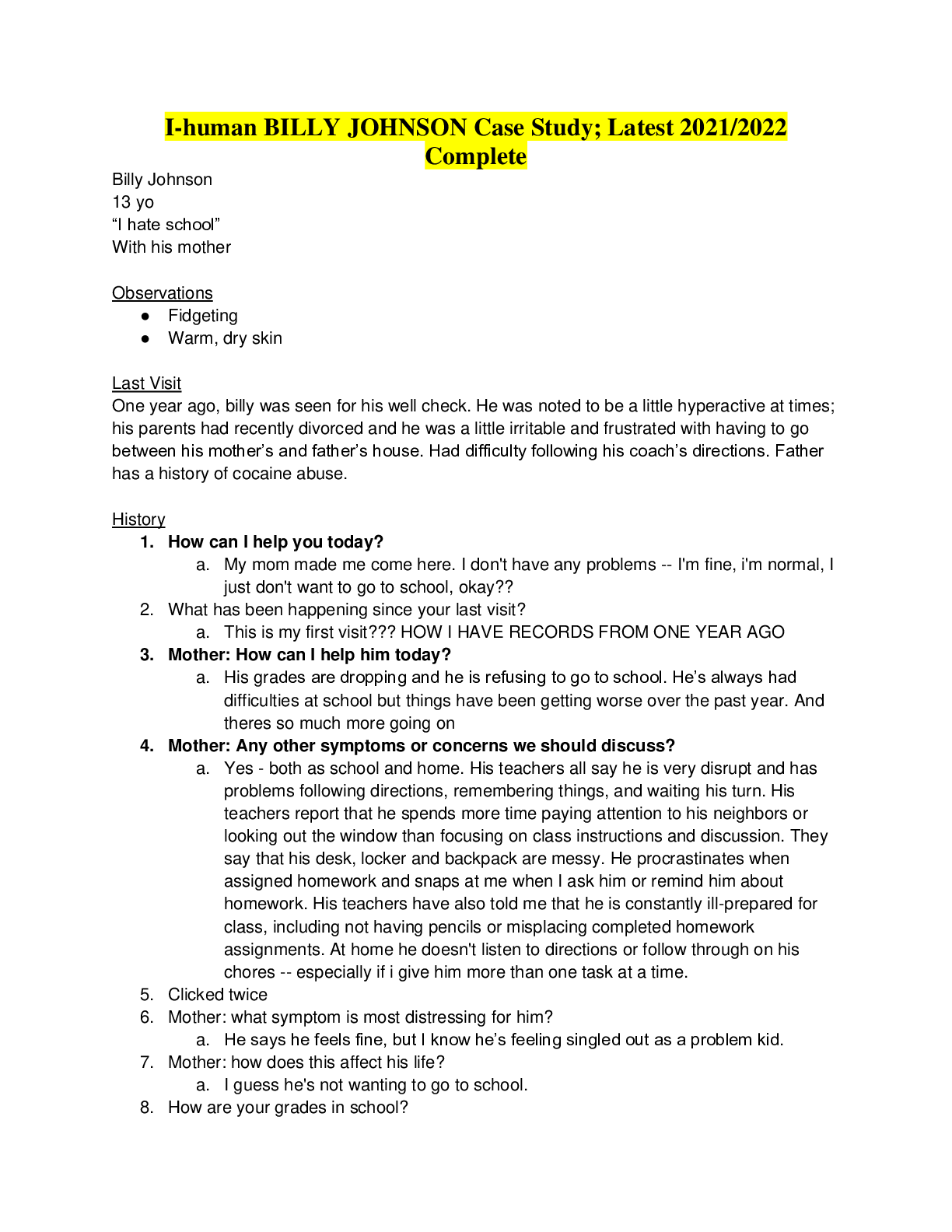


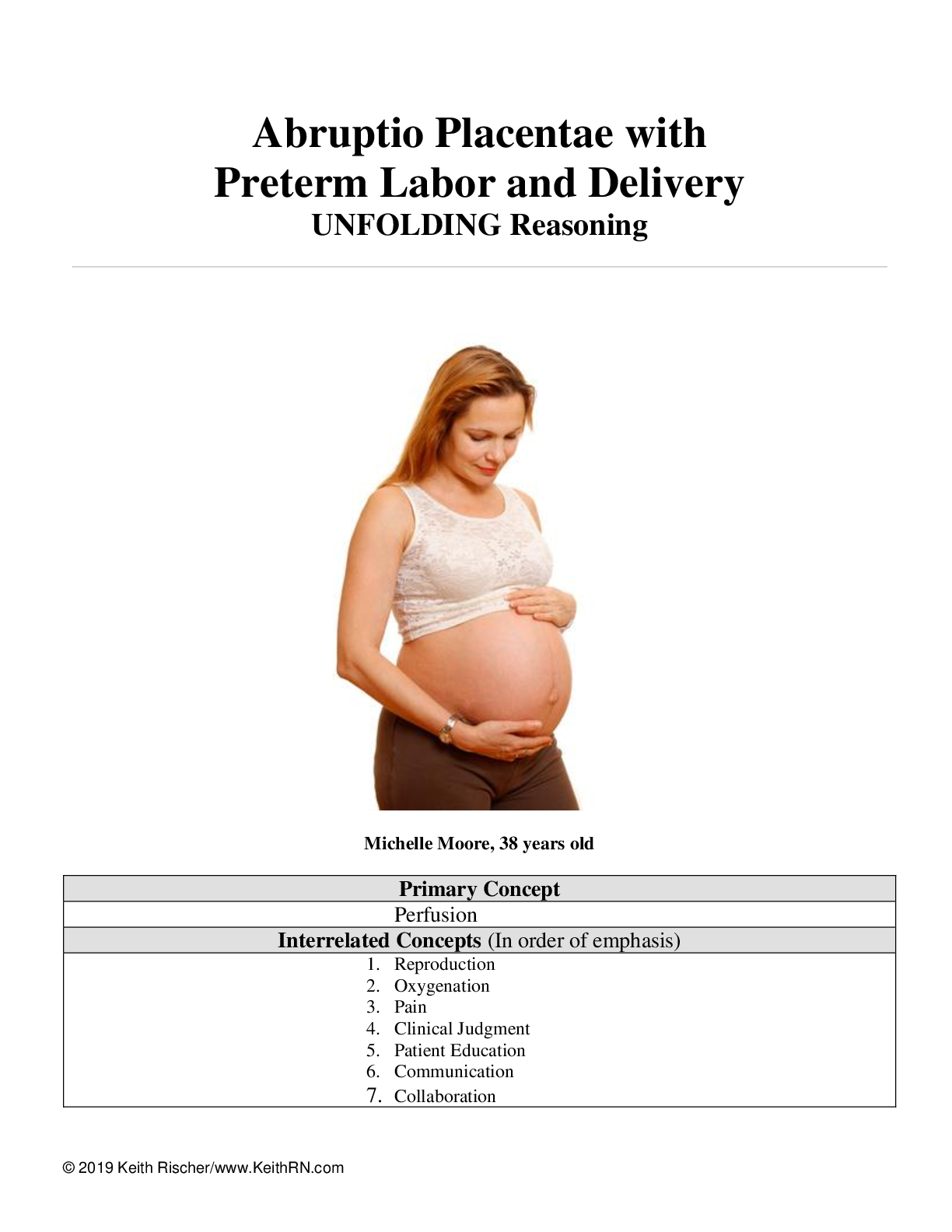









.png)
